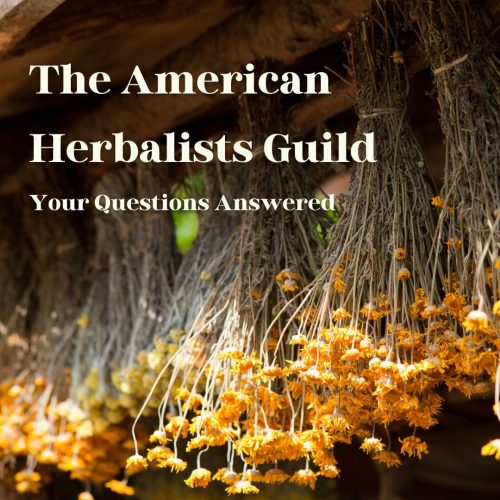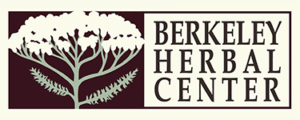
We are proud to say that many Berkeley Herbal Center certification program alumni apply to become part of the American Herbalists Guild (AHG). The AHG was founded in 1989 to promote the responsible use of herbal medicine and support the education and professional development of herbal practitioners.
Here, we have compiled a list of frequently asked questions to provide you with information about the organization, its mission, the benefits of being part of the AHG, and how the Berkeley Herbal Center Certification Programs can help you achieve membership.
The information below is from the American Herbalists Guild Website and the experiences from our graduates that have applied to be part of the guild.
The American Herbalists Guild is a supportive community of herbal practitioners. It is dedicated to promoting the safe and effective use of herbal medicine throughout the United States.
Established more than 30 years ago, the AHG continues to support the education and professional development of its members. It sets standards for herbal education and safe practice. It provides resources and information to the public along with maintaining a directory of qualified herbal practitioners, or Registered Herbalists, RH).
There are plenty of benefits to being a registered herbalist (RH).
Professional Recognition. By becoming a member of the AHG, herbalists can add RH to their titles. This is the sign, for clients and other herbalists, that they are qualified herbal practitioners. This designation helps you to establish credibility and professional standing within the field of herbal medicine.
Networking with Other Registered Herbalists. The American Herbalists Guild is a community of like-minded individuals who are passionate about herbal medicine. Membership gives herbalists opportunities to connect with other vetted and experienced practitioners, share knowledge and resources, and collaborate on projects.
Access to Insurance. The AHG has agreements with insurance companies to provide liability coverage for its members. This is important because legal protection and insurance is difficult to get as an herbal practitioner because there is no licensing for practitioners in the United States.
Representation. The nonprofit is an ally and a strong advocate for herbal medicine and its practitioners. Because of its size and recognition, the AHG is able to work with government agencies and other organizations to promote the safe and responsible use of herbal medicine and to protect the rights of practitioners.
It is important to know that currently no state in the United States offers licensing for herbalists. Without licensing, herbalists are primarily protected by the first amendment, which gives herbalists the right to recommend herbal supplements. However, it doesn’t offer herbalists the right to say they “diagnose, prescribe, treat, or cure disease.”
The American Herbalists Guild offers non-licensed credentials for herbalists. The Guild is an advocate that offers strength in numbers and a reputation for promoting the safe and effective use of herbal medicine. Through that reputation and hard work, it has been able to offer support, liability insurance, and advice on how best to practice (including templates for client transparency and legal disclaimers).
It takes a combination of education and clinical practice to join the Americal Herbalists Guild.
AHG has rigorous membership criteria for becoming a registered herbalist because members are healthcare professionals!
While the RH credential is an acclaimed and widely recognized credential for herbal practitioners, it may not be necessary for everyone who walks the life-path of plant healing. For this group, the AHG created the Associate Membership.
This category of membership is for individuals who are in the process of completing their education and clinical training in herbal medicine or who are dedicated to herbalism but aren’t interested in becoming clinical herbalists.
We do have a long-standing relationship with the American Herbalists Guild but the AHG is not an accrediting body nor does it evaluate any herbal school or training program. The schools on the AHG directory pay to be listed there.
The Berkeley Herbal Center Certification Programs offer you 3/4 of the educational hours that you need to join. We offer you the required understanding of the human body and plant chemistry along with requiring a 120 herb materia medica as part of your studies and teaching you how to build cases and case histories.
When it comes to the rest of your certification hours and your continuing education, we offer extensive short courses and an online course library to help round out the education hours that you need.
If you choose to join a clinical program, we offer supervised training hours and hands-on clinical experience to jumpstart your private practice.
If your dream is to be a Registered Herbalist, we recommend starting with a certification course.
While it is possible to piecemeal your foundational herbal education together, following our program will put you in the best position to continue your education, become an herbalist, and jumpstart your herbal career.
Click Here to learn more about our upcoming certification programs.
Support Our Work
Berkeley Herbal Center is a 501(c)(3) organization, so all donations are tax deductible. Tax ID #14-1975183
If you would like to donate by check or cash, please send an envelope addressed to:
Berkeley Herbal Center
1250 Addison St., #G
Berkeley, CA 94702
